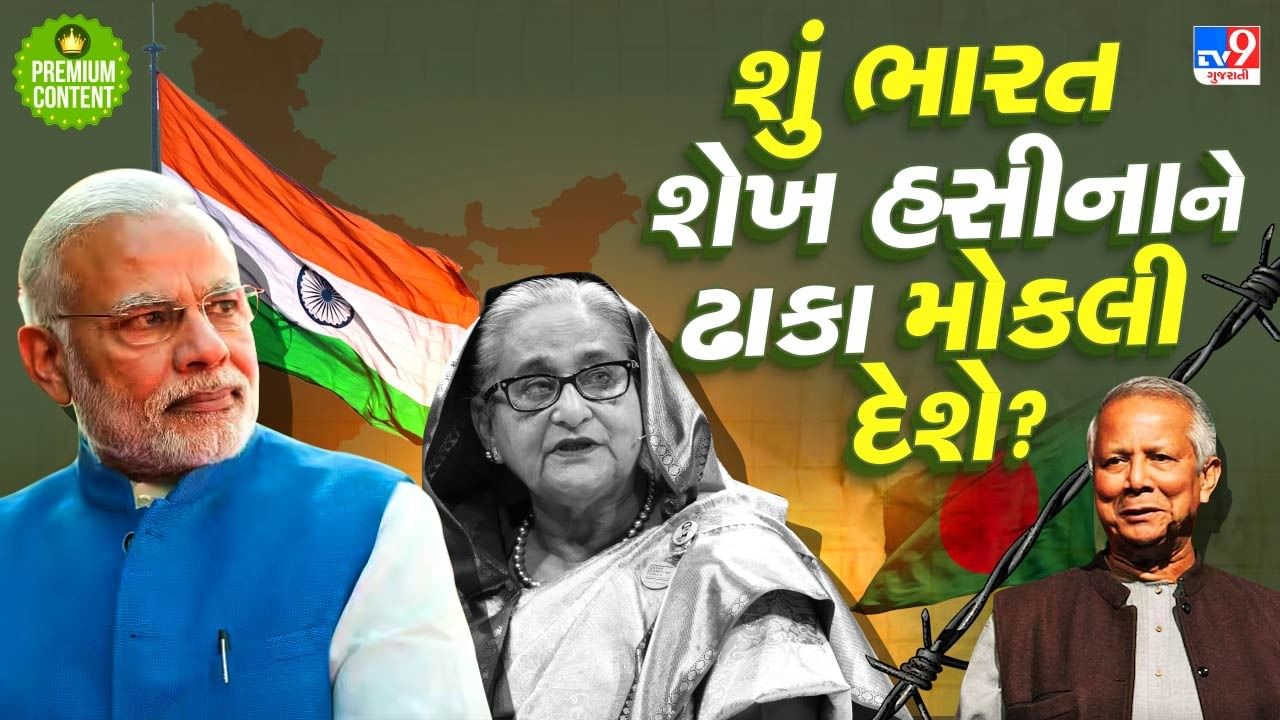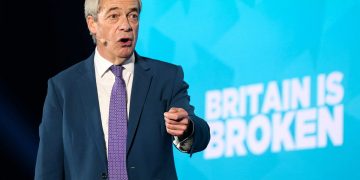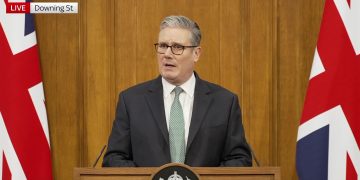
Very interestingly, the extradition treaty between India and Bangladesh is designed to deal with extradition of 1971 war crimes and extremists active across the border. This is why Sheikh Hasina never thought while making the treaty that it would sometimes be used against her.
Bangladesh's International Crimes Tribunal (ICT) on Monday sentenced former PM Sheikh Hasina to death. The ICT has held him responsible for the violent suppression of protests in July-August last year, killing around 1,400 demonstrators. After this verdict, the interim government of Bangladesh, whose advisor is Mohammad Yunus, has demanded the handover of Sheikh Hasina to India. For this, Bangladesh is arguing that this is a court decision and that Sheikh Hasina has been convicted of 'crimes against humanity'.
The words 'crime against humanity' have been weaponized by Mohammad Yunus against Sheikh Hasina and India. However, India-Bangladesh reached an agreement on the extradition of prisoners in 2013, which is why this agreement is being blamed. But can India be pressured to hand over Sheikh Hasina to Bangladesh? After all, what does Mohammed Yunus want? It becomes very important to understand what Delhi's strategy is to counter Mohammad Younus.
Can Bangladesh's extradition request be considered legitimate?
Bangladesh has made an official request citing the 2013 India-Bangladesh Extradition Treaty, but the matter is not so straightforward given the legal provisions, political exceptions and domestic laws of India. An examination of Articles 1 and 2 of this treaty reveals that extradition is possible only if a person has been charged, accused or convicted of an extraditable offence. In Sheikh Hasina's case, the ICT has issued such a warrant, so Dhaka's request is procedurally valid. But the real complication is the condition of dual criminality. That is, the crime should be punishable under the laws of both countries.
“Crimes against humanity” in Bangladesh are defined under the country's war crimes laws. But India generally views such crimes in the context of international courts, not domestic political events. This opens a window for India to present its arguments. India may argue that there is no such law in India, and hence Sheikh Hasina's case is not extraditable. Interestingly, the treaty was designed to deal with extradition of 1971 war crimes and cross-border terrorists. Perhaps, this is why, while drafting the treaty, Sheikh Hasina never thought that it could be used against her.
NBT spoke to senior Indian diplomat SD Muni over phone to understand the matter in depth. “India cannot under any circumstances hand over Sheikh Hasina to Bangladesh,” he said. He said, “India's argument is that the International Crimes Tribunal itself, which has given this judgment, is not legitimate. Moreover, Sheikh Hasina has been accused of inciting violence, so how can it be proved? She has not provided any evidence. Moreover, how can it be proved that the policemen on the ground who are accused of shooting people are the same policemen? Could it be anyone? Besides, the army was also involved at the time, when the army was involved in such a case. What can a Prime Minister do after getting involved?
Can India refuse extradition?
Many experts are referring to Articles 6(1) and 8(3) and here the issue becomes a bit sensitive indeed. Article 6(1) states that extradition can be refused if the offense is “of a political nature”. The ouster of Sheikh Hasina and the protests against her were political demonstrations which later resulted in demands for her ouster, which led to violence, so the ouster of Sheikh Hasina is a political movement. Meanwhile, the current interim government adviser, Mohammad Yunus, is considered a political opponent of Sheikh Hasina, so India can easily argue that the whole affair is politically motivated. Michael Kulegman, a South Asia analyst at the Wilson Center, an American think tank, is making the same argument.
In addition, Article 8(3) of the treaty provides significant room for maneuver to India. It states that extradition can be withheld if it is done in good faith and not in the interest of justice. In the current circumstances, this argument provides a strong basis for India to argue that the case appears to be an attempt at political revenge. Although Bangladesh can use Article 6(2) to claim that the crime is not political, this is extremely difficult to prove at the international level, and such cases often drag on for years in international courts. Even if a judgment is reached, political conditions often change, or countries often refuse to accept a judgment against them.
Regarding geopolitical strategy, Professor SD Muni said, “India cannot hand over Sheikh Hasina under any circumstances. If India does so, the Awami League will be wiped out from Bangladesh. Then Islamic forces will be in power, and China and Pakistan will be completely dominant. Even if the BNP has the support of the US, the US will never be a major power in Bangladesh. Handing over Sheikh Hasina is a direct threat to India's national security.”
Can Bangladesh force India?
The answer to this question is – legally, absolutely not. India has sufficient grounds to categorically refuse Sheikh Hasina's extradition, both under the treaty and under its domestic law. Even if Dhaka makes an extradition request, it will be entirely at the discretion of the Government of India to accept it or not. Therefore, it must be assumed that, no matter how much Mohammed Yunus thrashes, India will not hand over Sheikh Hasina to Dhaka under any circumstances.
Is it the 'Deep State' theory of America that shakes the throne of the countries of the world to achieve its own interests? At whose behest and how does it work?-Read
. Source





























